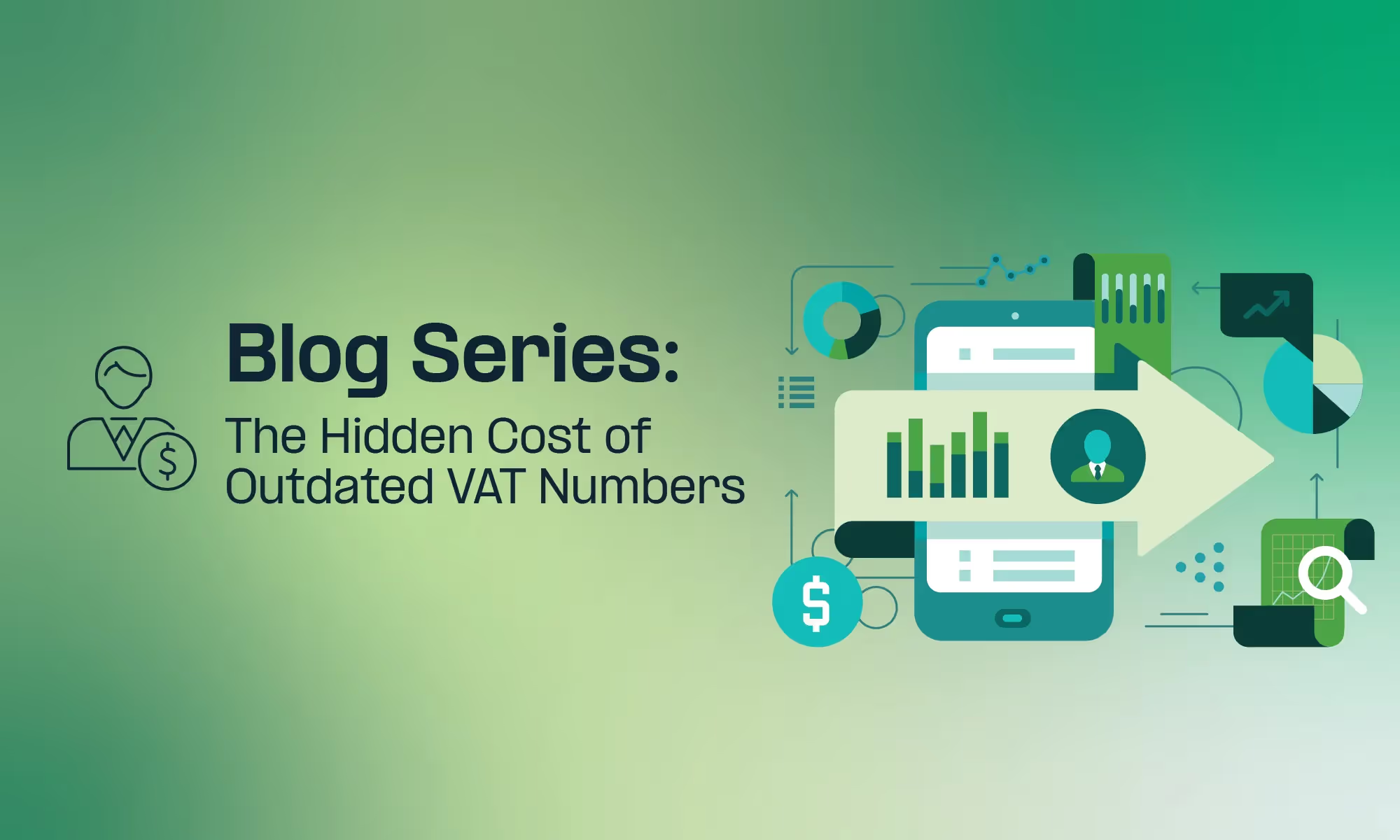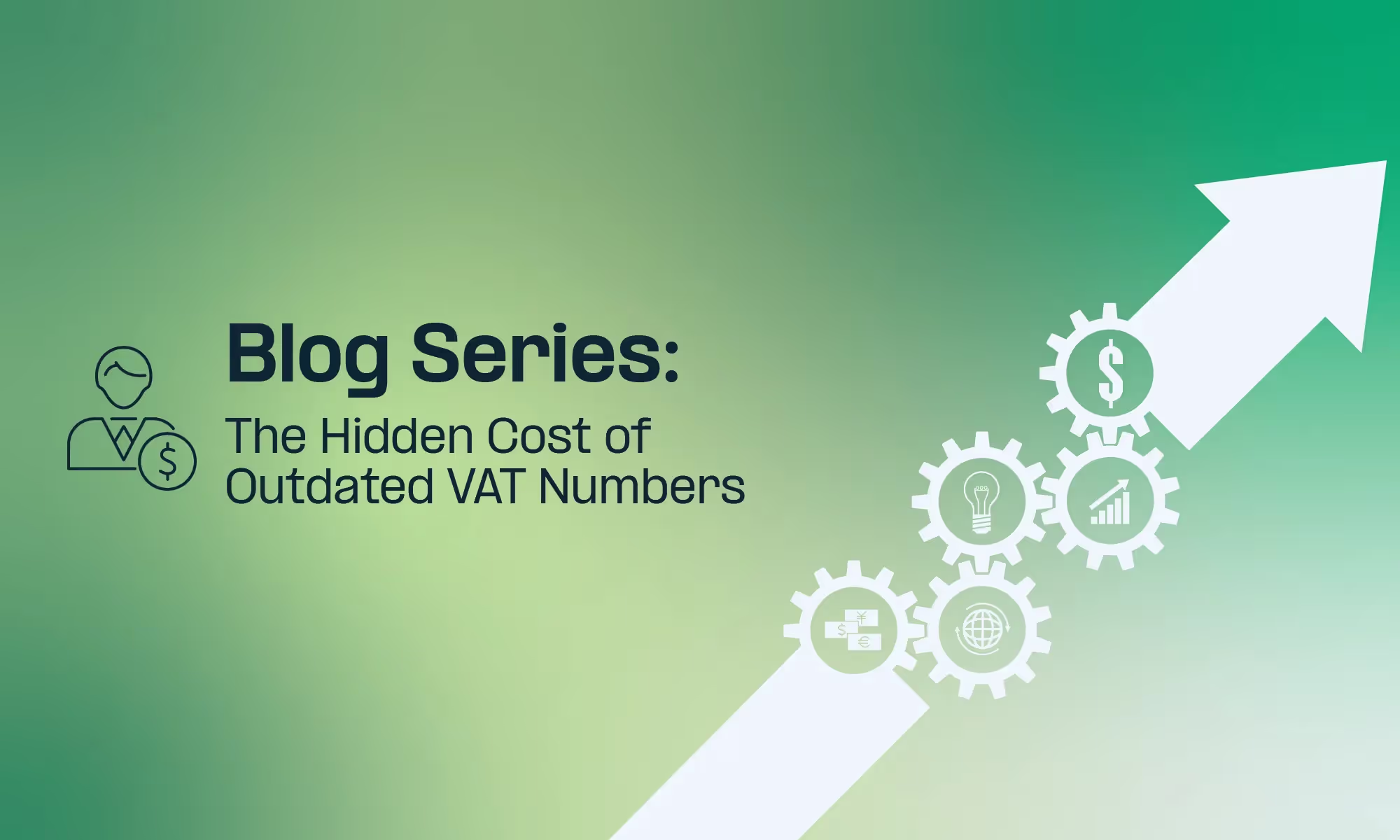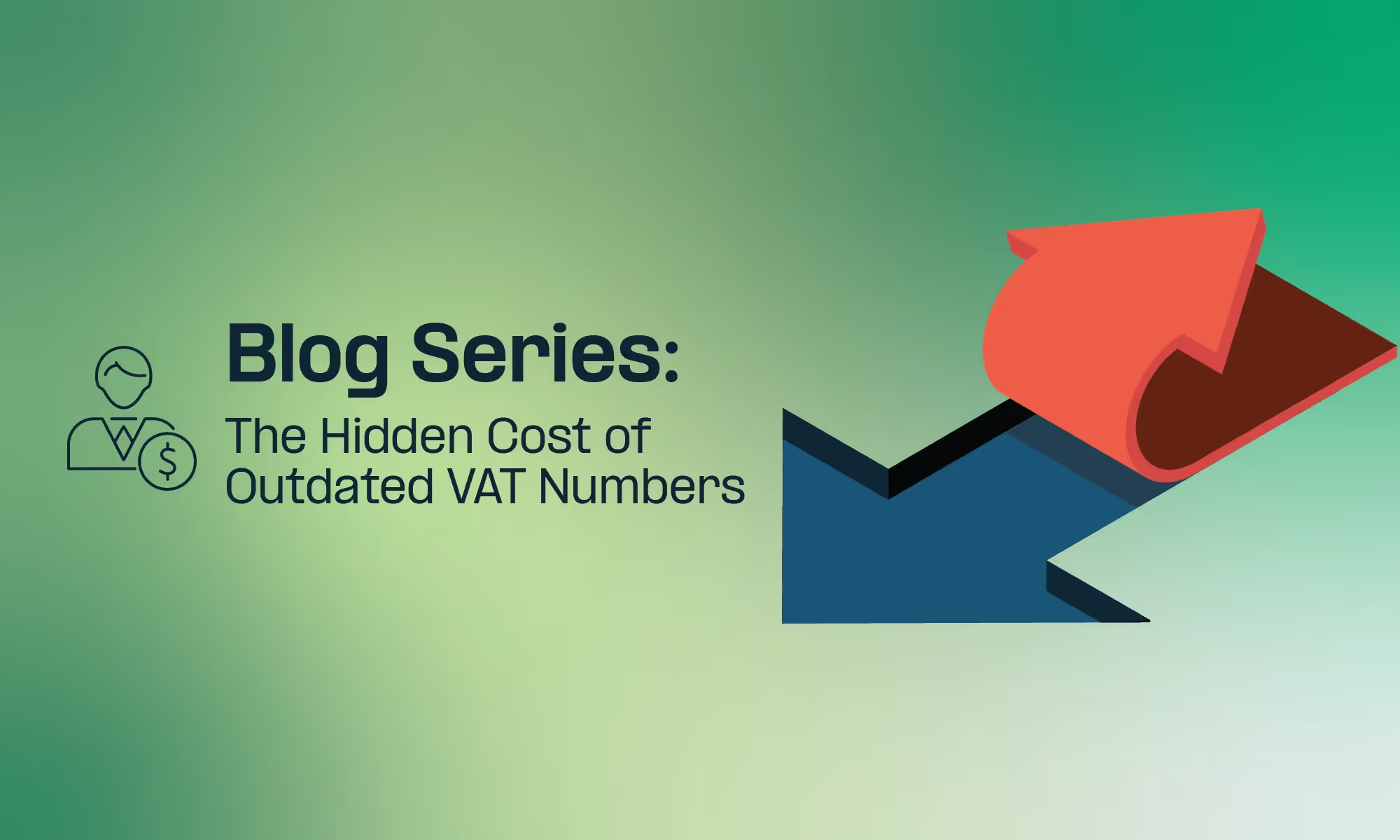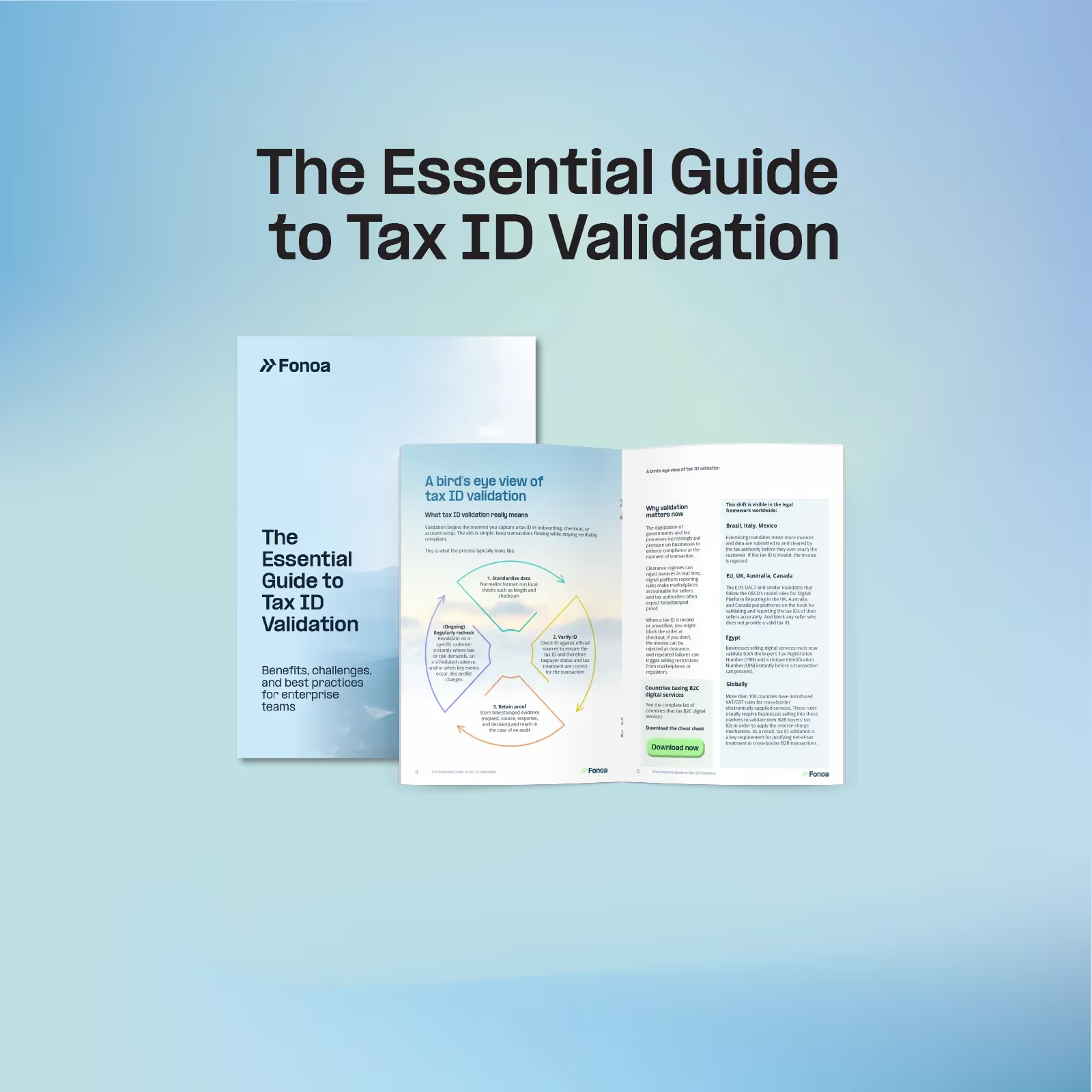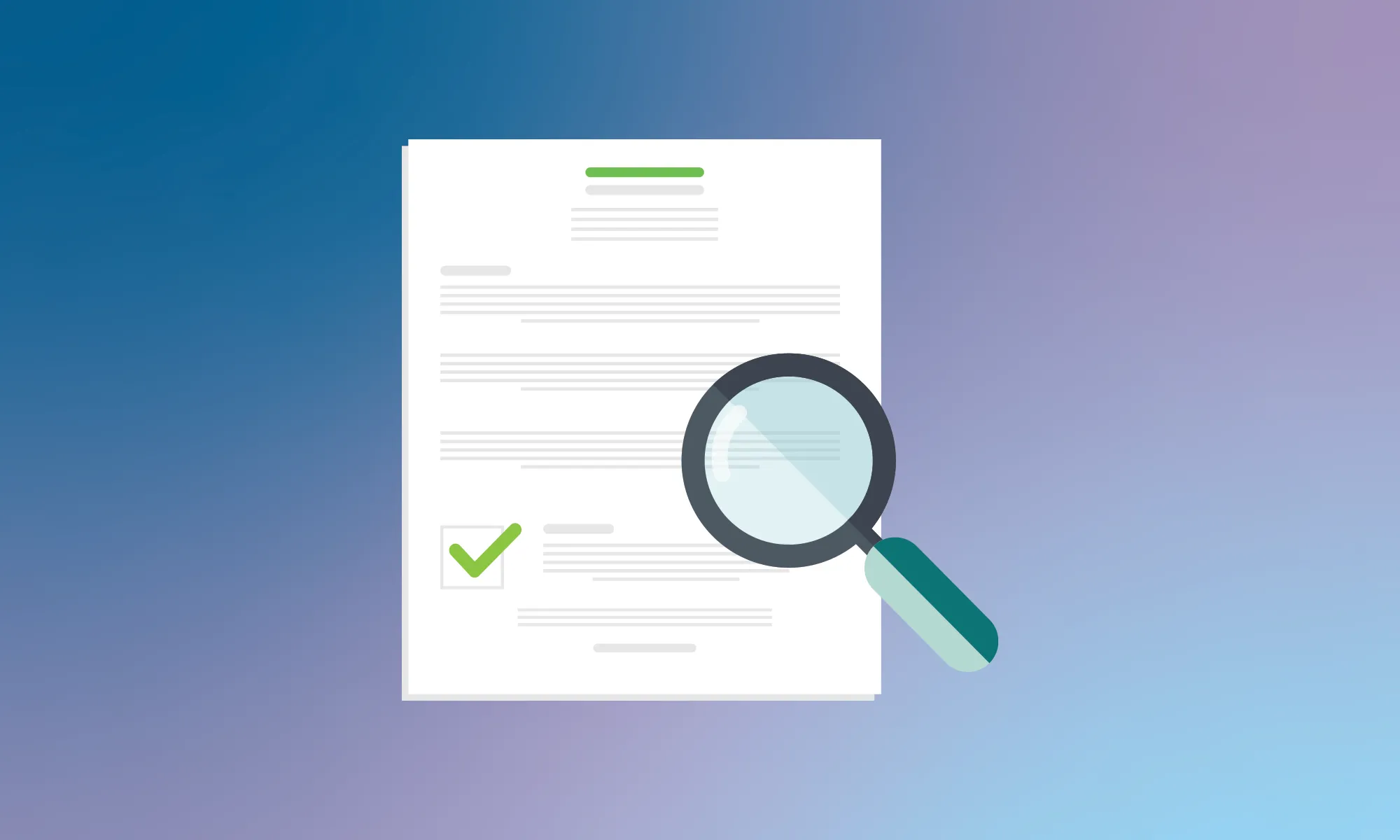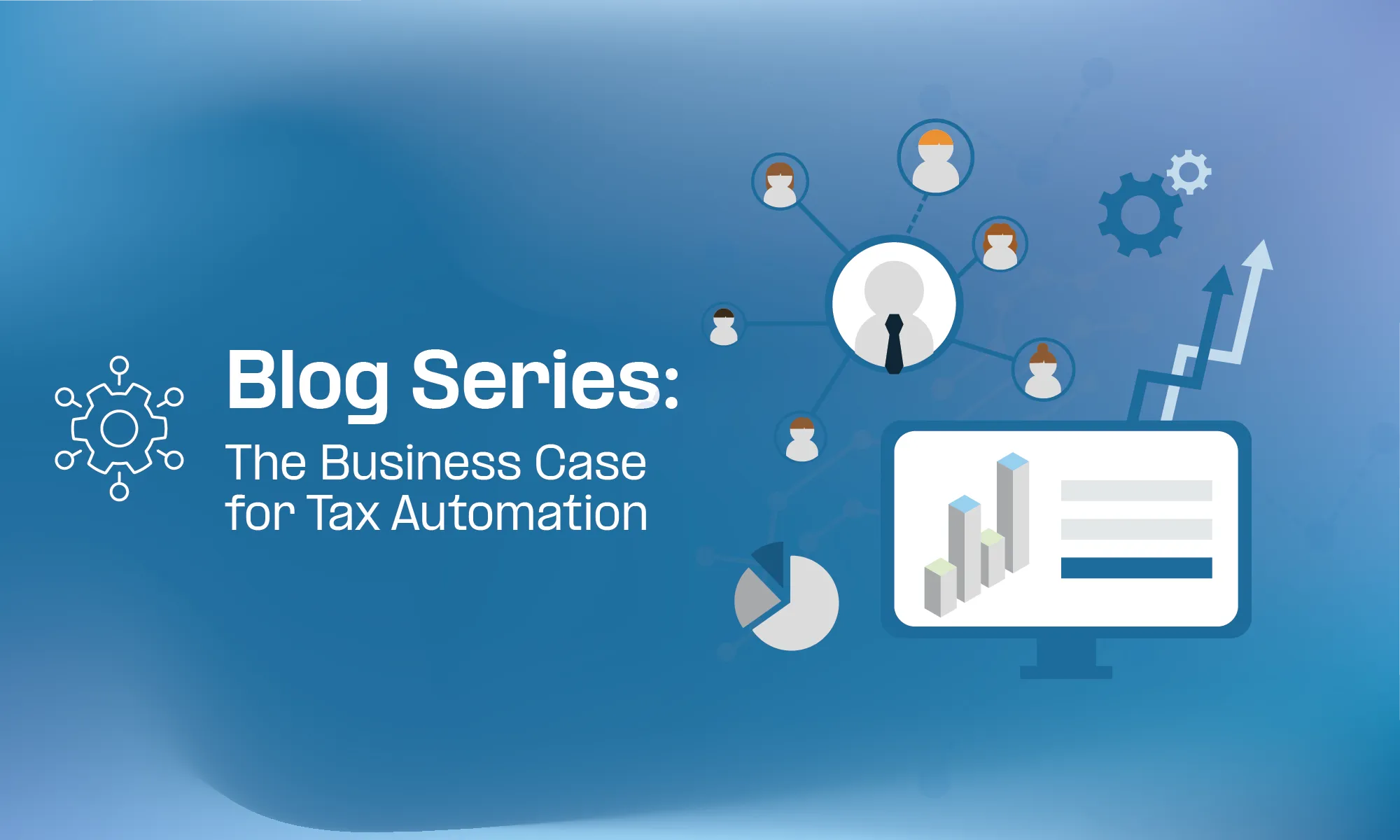In this post (Part 4 of our series on validating tax IDs), we explore why tax IDs may not be for life.
What is master data for tax and finance teams?
Master data refers to the core information about customers and suppliers in a company’s systems, including their names, addresses, and TINs. Having clean, accurate tax ID data in your master records is foundational to smooth tax and finance operations.
Key benefits of accurate tax and finance data
Accurate tax calculation and billing
Many tax engines and billing systems determine tax treatment based on the presence or validity of a customer’s tax ID.
For example, an EU SaaS provider’s system might automatically zero-rate a sale if a VAT number is on file for the customer. If that number is invalid or missing, the system might charge VAT when it’s not due, or vice versa.
Clean data ensures that the correct tax gets charged on each invoice. This prevents scenarios like overcharging VAT to a business customer (causing refund hassles and customer dissatisfaction) or undercharging VAT to a consumer (leading to liability for the company).
Seamless e-invoicing and reporting
When master data is clean, generating compliant e-invoices or reports becomes a byproduct of the system, not an ordeal. Governments in 40+ jurisdictions now demand granular data in filings.
For instance, Spain’s SII system, Hungary’s real-time reporting, Malaysia's e-invoicing, Italy’s SDI, Mexico’s CFDI and Saudi Arabia’s ZATCA all require correct partner tax IDs in every submission.
France’s BOFiP guidance likewise stresses that both parties’ VAT IDs must appear on intra-EU invoices and be validated via VIES. French authorities encourage ongoing checks, noting that invalid VAT IDs risk audits and denied exemptions.
This makes VAT number accuracy a central part of master data governance. If your master data has been validated, you can populate these reports confidently. Conversely, bad data leads to failed submissions or lots of last-minute scrambles to find correct info. A robust master database with validated IDs means automation can be leveraged to the fullest, reducing manual effort.
Timely audits and reconciliations
Downstream finance functions, like reconciling VAT payable vs. receivable or conducting audits, are far simpler when the underlying data is reliable. If every transaction record has a valid counterparty tax ID, it’s easier to match transactions against counterparties’ records (for example, tax authorities sometimes cross-check sales and purchase listings between companies using VAT numbers as keys).
Clean data means fewer audit queries. Auditors (or internal compliance teams) won’t be wasting time chasing down who a particular VAT number belongs to, or why a number on an invoice doesn’t exist in the official register. It also avoids the nightmare of having to restate filings because you discovered half of your “B2B sales” were recorded with invalid customer VAT numbers (meaning they should have been taxed as B2C).
Reduced risk in downstream systems
Master data is often propagated into multiple systems: ERP, tax filing software, analytical tools. If a tax ID is wrong in the master, it will be wrong everywhere. This can lead to inconsistencies (e.g., your invoice system vs. your tax report may not match on partner identity, causing discrepancies).
Clean data ensures all systems speak the same, correct language, which is crucial for compliance in “clearance” regimes where reported data must match invoices exactly. In clearance e-invoicing, reporting is the invoice; any master data errors will immediately become tax compliance errors. Thus maintaining correct IDs in master data is part of being “audit-ready” at all times.
Enable advanced analytics and decision making
Beyond compliance, clean master data has analytic value. Companies can analyze sales by country, by customer type (business vs consumer via tax ID presence), etc., to make strategic decisions.
If tax ID data is polluted (some business customers not marked properly due to missing/invalid IDs), it skews these analyses. High-quality data about customer tax status can feed into decisions like market expansion (e.g., knowing how many business customers you have in each region) and pricing (tax-inclusive/exclusive strategies).
In short, good tax data hygiene not only avoids problems but also adds business insight value.
Review and revalidate data regularly, saving audit-ready proof
One concrete best practice is to implement regular master data reviews for tax data. As mentioned, leading companies periodically validate their entire data set of tax numbers. They might schedule monthly or quarterly batch validations of all VAT/GST IDs in the database. Any failed validations can then be proactively addressed (contact the counterparty for an update, or flag the account for special handling).
Additionally, companies should keep proof of validation. The European Commission, for example, recommends keeping evidence of VAT number checks in case of tax control. Storing a timestamp and result of each validation in the master data not only keeps it clean but also provides an audit trail that you took “reasonable steps” to confirm tax statuses.
Summary: High data quality saves headaches and time
In summary, clean tax ID master data is an enabler of automation and compliance. It means invoices go out right the first time, tax returns align with invoices, and audits are uneventful. Conversely, poor data quality here is a root cause of many downstream breakdowns. Thus, revalidating and cleansing tax IDs is a small investment of effort that pays off across the entire finance and tax operation.
